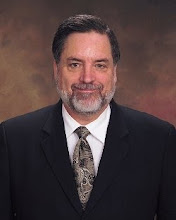Is Faith Blind?
Is it possible to establish a foundation of certainty on which we can erect a belief structure that is not based on blind faith?
Yes, but one must begin with the most basic truth that is intuitively provable and undeniably certain discovered by the French philosopher René Descartes. It was Descartes who said "I think, therefore, I am". We've all heard this famous quote, but, how many realize the significance of his statement?
Descartes proved the existence of self is impossible to doubt because the mere act of thinking about something - anything, regardless of its truth value - necessarily implies there must be something engaged in that activity, namely an “I.” Even the act of self-doubt proves that something exists to doubt its own existence. And, since this conclusion derives not from sensory input nor does it depend on the reality of an external world, it serves as a self-evident truth, an axiom, from which other truths can be determined or inferred.
The existence of self, then, becomes the foundation of certainty on which a belief structure can be erected.
Moreover, the certainty of my existence implies that at least one absolute truth exists. How do I know this? Because the statement, "Truth does not exist" is necessarily false since it does not agree with the fact (or the reality) of my existence.
If nothing else, for something to be true, it must agree with reality.
Moreover, when I consider other facts about reality:
- The world is round (even if I believe it is flat)
- 2+2=4 (even if I can't add)
- The planets in our solar system revolve around the sun (even if I don't exist)
several things about the nature of truth emerge. Namely:
- Truth is independent of belief
- Truth is universal (2+2=4 is the same for everyone)
- Truth exists even if I do not
Additionally, there's something else I've discovered about truth - it doesn't contradict itself. The claim, "There is no truth" will always be false because if it were true, the claim would be simultaneously false, and therefore, self-refuting.
Self-refuting statements are the most common error people make with logic.
Consider these additional truth claims that are self-refuting:
- All truth is relative (except this statement which is absolutely true)
- It's wrong to judge the moral beliefs and behaviors of others (except the moral judgment of this statement)
- Only that which is testable by science can be true (despite the fact this statement is not testable by science)
- I am lying now (which, if true, means I'm not lying)
These statements reveal that truth must be self-consistent.
So, summarizing what I know about truth:
1. It exists.
2. It must correspond to reality
3. Must be self-consistent
2. It must correspond to reality
3. Must be self-consistent
4. Independent of belief
5. Universal
6. Absolute
7. Discoverable
8. Understandable
5. Universal
6. Absolute
7. Discoverable
8. Understandable
Equipped with this knowledge about the nature of truth an belief structure can be erected to answer questions like:
1. Does my existence have an origin?
2. Does my existence have meaning?3. Does my existence have purpose?
Answering these questions leads to broader questions such as:
1. Does the Universe have an origin?
2. Does the Universe have a purpose?
3. Does God exist and, if so, how can I know him and what role does he play in human affairs, if any?
As we seek these answers we form beliefs. Beliefs are important because they shape our behavior, attitudes, and perceptions - even our identities. In fact, I argue they are intrinsic to the human mind because nobody is born knowing everything (omniscience) and since we don't belong to a collective mental hive (think Borg), our minds have no choice but to form hypotheses and assumptions about our experiences in our environment. We simply can't help it! Our brains seem hard-wired for making inferences!
However, we should strive to develop a belief model that provides the most thorough explanation of the Universe based on the nature of truth as described above. Some aspects of this model will be based on certainty (like our self-existence) but the rest must be filled in by that which corresponds the closet to reality. In other words, the one which most throughly provides the answers to the questions I posed.
Thus, armed with the certainty of our existence and the knowledge of the nature of truth, it is indeed possible to erect a belief structure, a worldview, if you will, that is based not on blind faith, but on confident, cogent faith.


0 Comments:
Post a Comment
Subscribe to Post Comments [Atom]
<< Home